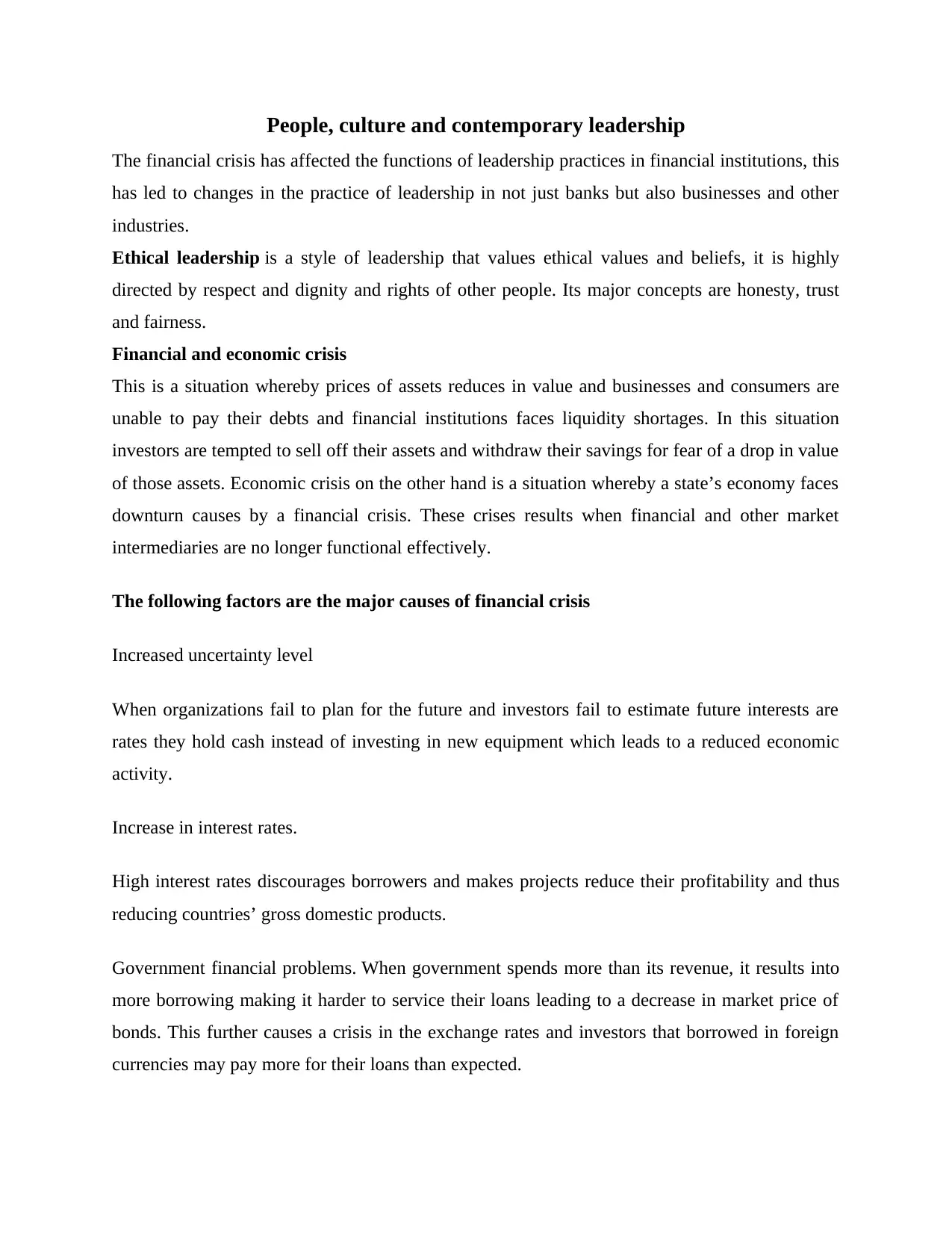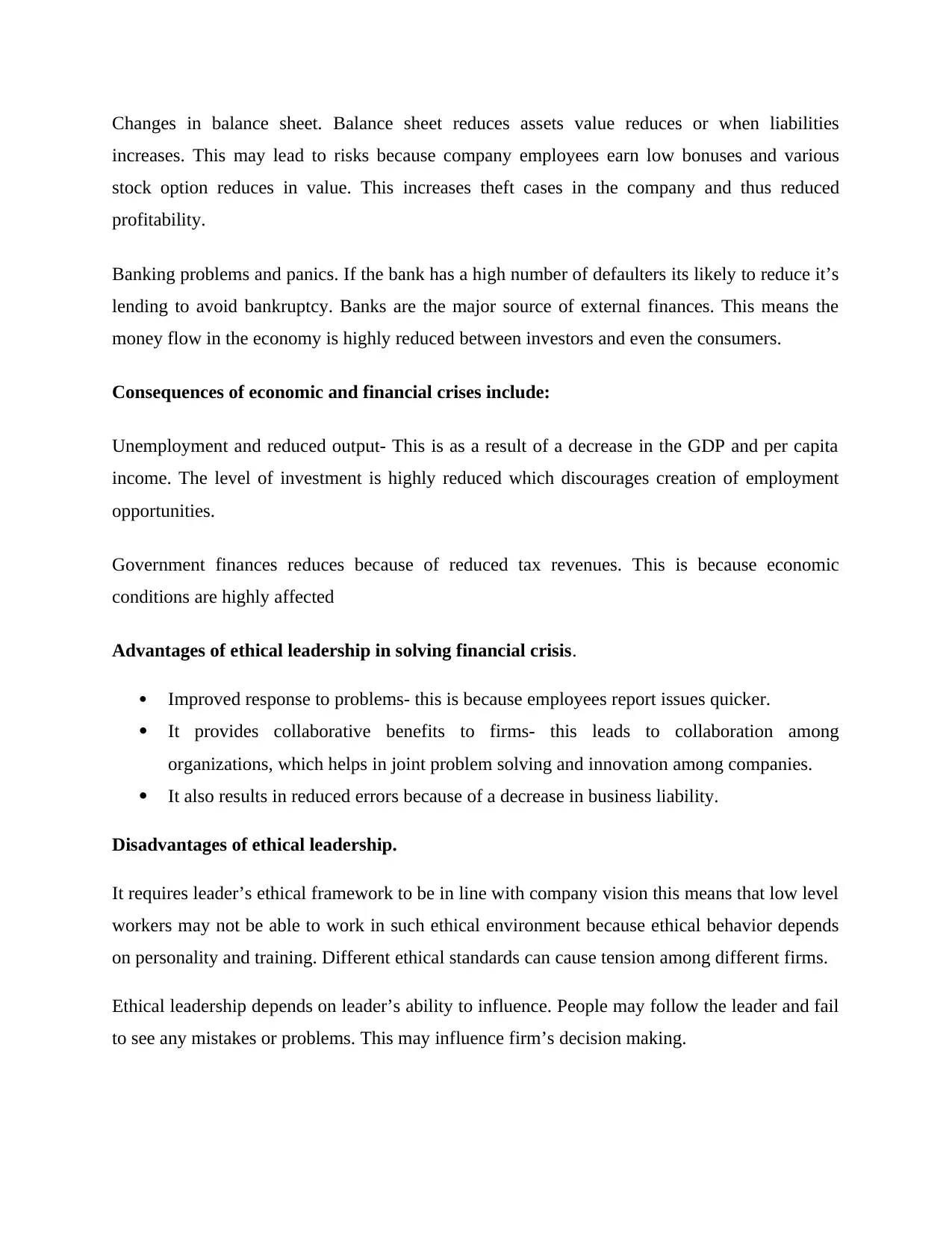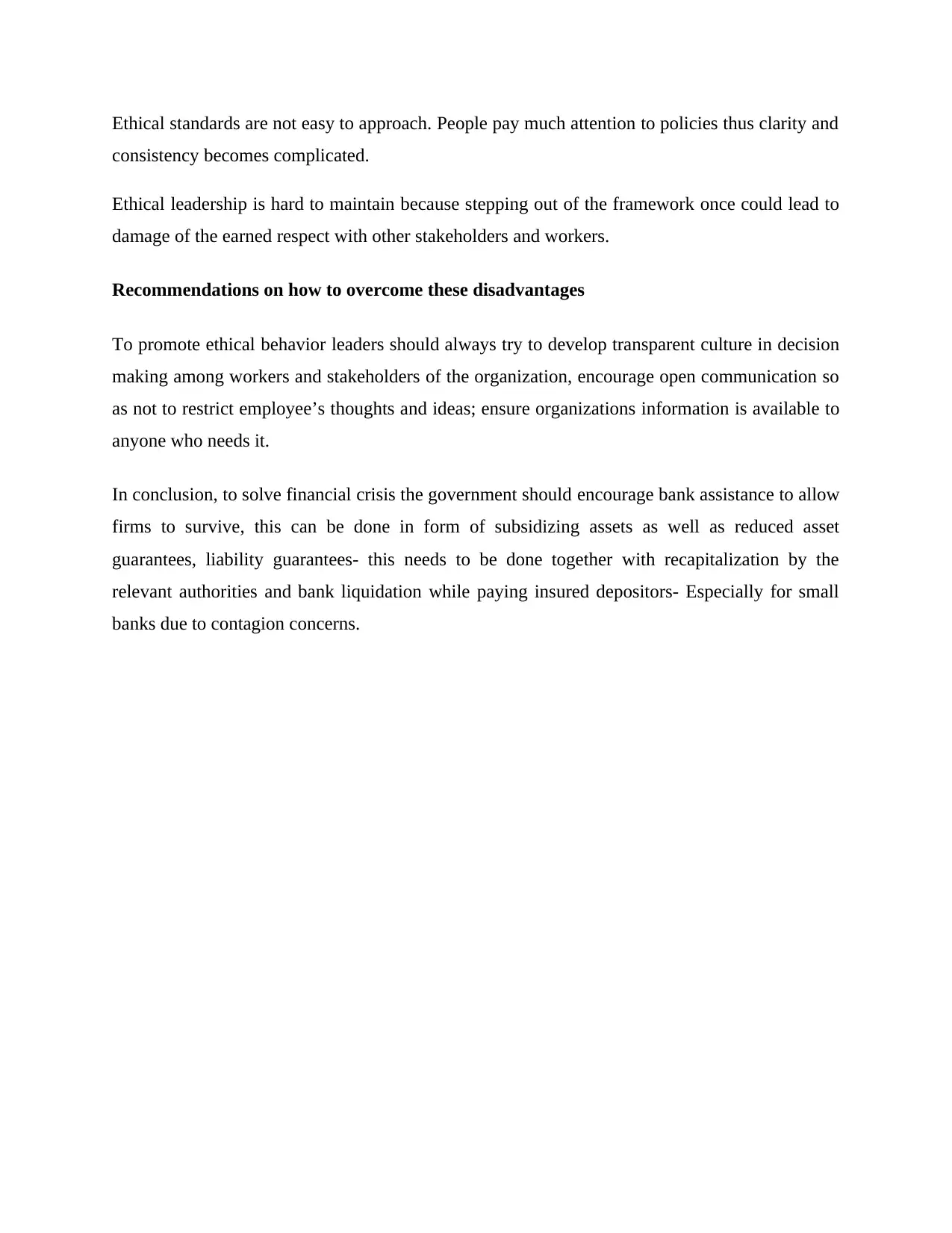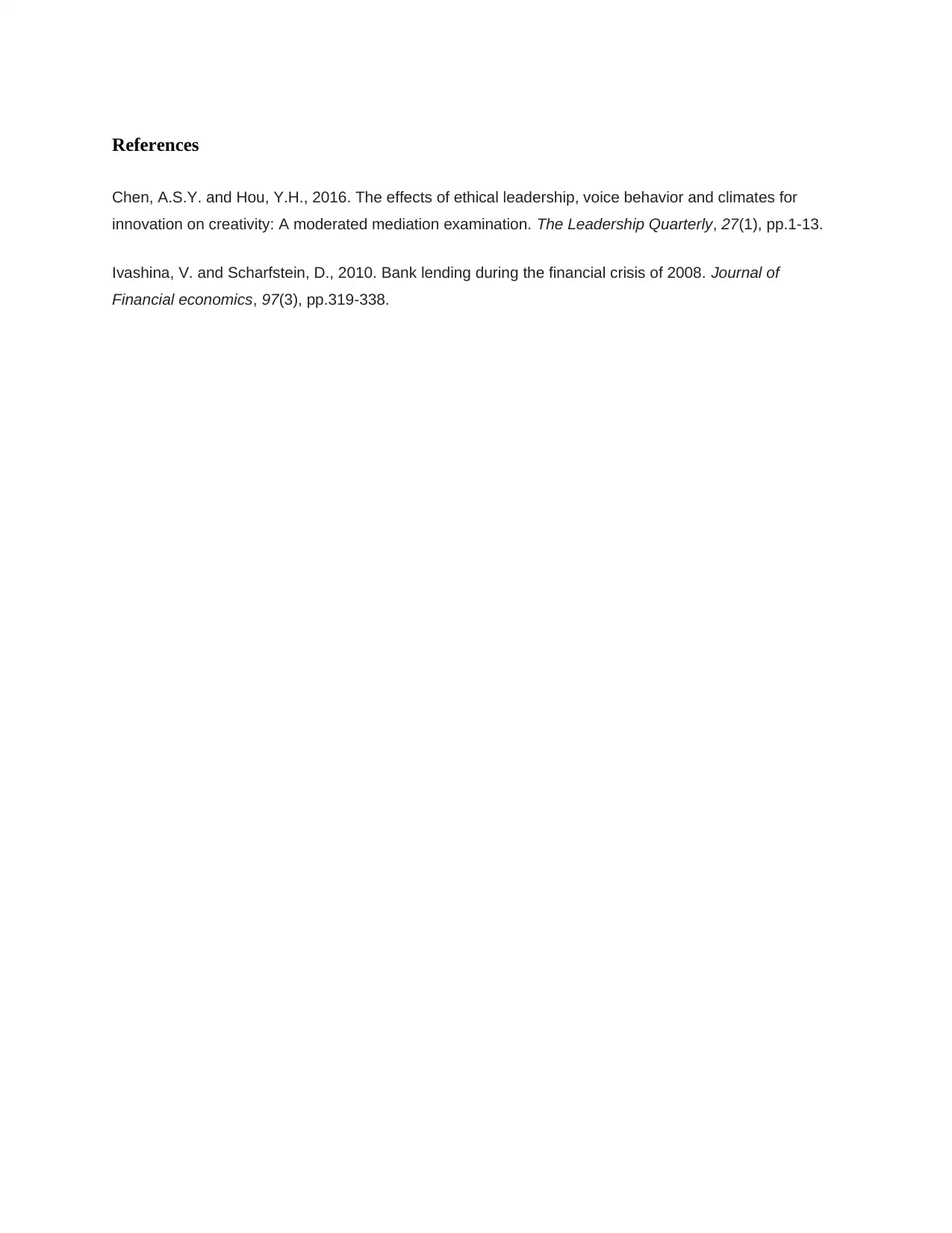People, Culture & Leadership: Ethical Leadership in Financial Crisis
VerifiedAdded on 2022/11/14
|4
|855
|95
Report
AI Summary
This report examines the application of ethical leadership in the context of financial crises. It begins by defining financial and economic crises, outlining their major causes, such as increased uncertainty, rising interest rates, government financial problems, changes in balance sheets, and banking problems. The report then details the consequences of such crises, including unemployment and reduced output, and reduced government finances. The core of the report analyzes the advantages of ethical leadership in addressing these crises, such as improved problem-solving and enhanced collaboration, while also acknowledging its disadvantages, including the dependence on leader's ethical framework, potential tensions with different ethical standards, and the challenges in maintaining ethical standards. Recommendations are provided to overcome these disadvantages, such as promoting transparent decision-making and open communication. Finally, the report concludes with suggestions for government intervention during financial crises, including bank assistance through asset subsidization, liability guarantees, and recapitalization, alongside bank liquidation for small banks to mitigate contagion concerns. The report references relevant literature to support its analysis.
1 out of 4











![[object Object]](/_next/static/media/star-bottom.7253800d.svg)